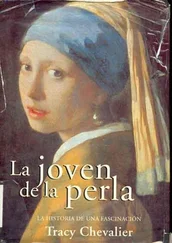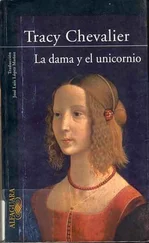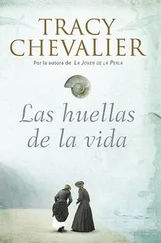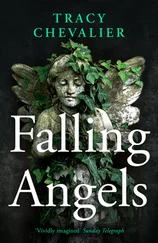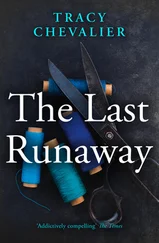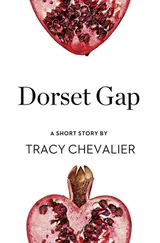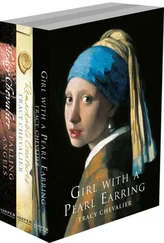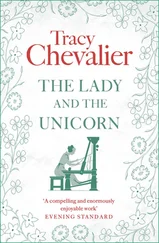Tracy Chevalier - Girl with a Pearl Earring
Здесь есть возможность читать онлайн «Tracy Chevalier - Girl with a Pearl Earring» — ознакомительный отрывок электронной книги совершенно бесплатно, а после прочтения отрывка купить полную версию. В некоторых случаях можно слушать аудио, скачать через торрент в формате fb2 и присутствует краткое содержание. Город: New York, Год выпуска: 1999, ISBN: 1999, Издательство: A Penguin Book, Жанр: Классическая проза, на английском языке. Описание произведения, (предисловие) а так же отзывы посетителей доступны на портале библиотеки ЛибКат.
- Название:Girl with a Pearl Earring
- Автор:
- Издательство:A Penguin Book
- Жанр:
- Год:1999
- Город:New York
- ISBN:0-7865-2016-7
- Рейтинг книги:4 / 5. Голосов: 1
-
Избранное:Добавить в избранное
- Отзывы:
-
Ваша оценка:
- 80
- 1
- 2
- 3
- 4
- 5
Girl with a Pearl Earring: краткое содержание, описание и аннотация
Предлагаем к чтению аннотацию, описание, краткое содержание или предисловие (зависит от того, что написал сам автор книги «Girl with a Pearl Earring»). Если вы не нашли необходимую информацию о книге — напишите в комментариях, мы постараемся отыскать её.
Girl with a Pearl Earring — читать онлайн ознакомительный отрывок
Ниже представлен текст книги, разбитый по страницам. Система сохранения места последней прочитанной страницы, позволяет с удобством читать онлайн бесплатно книгу «Girl with a Pearl Earring», без необходимости каждый раз заново искать на чём Вы остановились. Поставьте закладку, и сможете в любой момент перейти на страницу, на которой закончили чтение.
Интервал:
Закладка:
I was on the stairs when I heard van Ruijven say, “Where’s that wide-eyed maid? Gone already? I wanted to have a proper look at her.”
“Now, now, she’s nothing!” Catharina cried gaily. “It’s the painting you want to look at.”
I went back to the front bench and took my seat next to Tanneke, who wouldn’t say a word to me. We sat in silence, working on the cuffs, listening to the voices floating out from the windows above.
When they came down again I slipped around the corner and waited, leaning against the warm bricks of a wall in the Molenpoort, until they were gone.
Later a man servant from their house came and disappeared up to the studio. I did not see him go, as the girls had come back and wanted me to build up the fire so they could bake apples in it.
The next morning the painting was gone. I had not had a chance to look at it one last time.

That morning as I arrived at the Meat Hall I heard a man ahead of me say the quarantine had been lifted. I hurried to Pieter’s stall. Father and son were both there, and several people were waiting to be served. I ignored them and went straight up to Pieter the son. “Can you serve me quickly?” I said. “I must go to my family’s house. Just three pounds of tongue and three of sausages.”
He stopped what he had been doing, ignoring the indignant sounds from the old woman he had been helping. “I suppose if I were young and smiled at you you’d do anything for me too,” she scolded as he handed the packages to me.
“She’s not smiling,” Pieter replied. He glanced at his father, then handed me a smaller package. “For your family,” he said in a low voice.
I did not even thank him—I snatched the package and ran.
Only thieves and children run.
I ran all the way home.
My parents were sitting side by side on the bench, heads bowed. When I reached them I took my father’s hand and raised it to my cheek. I sat next to them and said nothing.
There was nothing to be said.

There followed a time when everything was dull. The things that had meant something—the cleanness of the laundry, the daily walk on errands, the quiet studio—lost importance, though they were still there, like bruises on the body that fade to hard lumps under the skin.
It was at the end of the summer that my sister died. That autumn was rainy. I spent much of my time hanging laundry on racks indoors, shifting them closer to the fire, trying to dry the clothes before mildew took over but without scorching them.
Tanneke and Maria Thins treated me kindly enough when they found out about Agnes. Tanneke managed to check her irritation for several days, though soon she began again to scold and sulk, leaving it to me to placate her. Maria Thins said little but took to cutting off her daughter when Catharina became sharp with me.
Catharina herself seemed to know nothing of my sister, or did not show it. She was nearing her confinement, and as Tanneke had predicted she spent most of her time in bed, leaving the baby Johannes to Maertge’s charge. He was beginning to toddle about, and kept the girls busy.
The girls did not know I had a sister and so would not understand that I could lose one. Only Aleydis seemed to sense that something was wrong. She sometimes came to sit by me, pushing her body close to mine like a pup burrowing into its mother’s fur for warmth. She comforted me in a simple way that no one else could.
One day Cornelia came out to the courtyard where I was hanging up clothes. She held out an old doll to me. “We don’t play with this anymore,” she announced. “Not even Aleydis. Would you like to give it to your sister?” She made her eyes wide and innocent, and I knew she must have overheard someone mention Agnes’ death.
“No, thank you,” was all I could say, almost choking on the words.
She smiled and skipped away.
The studio remained empty. He did not start another painting. He spent much of his time away from the house, either at the Guild or at Mechelen, his mother’s inn across the square. I still cleaned the studio, but it became like any other task, just another room to mop and dust.
When I visited the Meat Hall I found it hard to meet Pieter the son’s eye. His kindness pained me. I should have returned it but did not. I should have been flattered but was not. I did not want his attention. I came to prefer being served by his father, who teased me but did not demand anything from me but to be critical of his meat. We ate fine meat that autumn.
On Sundays I sometimes went to Frans’ factory and urged him to come home with me. He did twice, cheering my parents a little. Until a year before they’d had three children at home. Now they had none. When Frans and I were both there we reminded them of better times. Once my mother even laughed, before stopping herself with a shake of her head. “God has punished us for taking for granted our good fortune,” she said. “We must not forget that.”
It was not easy visiting home. I found that after staying away those few Sundays during the quarantine, home had come to feel like a strange place. I was beginning to forget where my mother kept things, what kind of tiles lined the fireplace, how the sun shone in the rooms at different times of the day. After only a few months I could describe the house in Papists’ Corner better than my family’s.
Frans especially found it hard to visit. After long days and nights at the factory he wanted to smile and laugh and tease, or at least to sleep. I suppose I coaxed him there hoping to knit our family together again. It was impossible, though. Since my father’s accident we had become a different family.

When I came back one Sunday from my parents’, Catharina had begun her labor. I heard her groaning when I stepped inside the front door. I peeked into the great hall, which was darker than usual—the lower windows had been shuttered to give her privacy. Maria Thins was there with Tanneke and the midwife. When Maria Thins saw me she said, “Go look for the girls—I’ve sent them out to play. It won’t be long now. Come back in an hour.”
I was glad to leave. Catharina was making a great deal of noise, and it did not seem right to listen to her in that state. I knew too that she would not want me there.
I looked for the girls in their favorite place, the Beast Market round the corner from us, where livestock was sold. When I found them they were playing marbles and chasing one another. Baby Johannes tumbled after them—unsteady on his feet, he half walked, half crawled. It was not the kind of play we would have been allowed on a Sunday, but Catholics held different views.
When Aleydis grew tired she came to sit with me. “Will Mama have the baby soon?” she asked.
“Your grandmother said she would. We’ll go back in a bit and see them.”
“Will Papa be pleased?”
“I should think so.”
“Will he paint more quickly now there’s another baby?”
I did not answer. Catharina’s words were coming from a little girl’s mouth. I did not want to hear more.
When we returned he was standing in the doorway. “Papa, your cap!” cried Cornelia. The girls ran up to him and tried to snatch off the quilted paternity cap he wore, its ribbons dangling below his ears. He looked both proud and embarrassed. I was surprised—he had become a father five times before, and I thought he would be used to it. There was no reason for him to be embarrassed.
It is Catharina who wants many children, I thought then. He would rather be alone in his studio.
Читать дальшеИнтервал:
Закладка:
Похожие книги на «Girl with a Pearl Earring»
Представляем Вашему вниманию похожие книги на «Girl with a Pearl Earring» списком для выбора. Мы отобрали схожую по названию и смыслу литературу в надежде предоставить читателям больше вариантов отыскать новые, интересные, ещё непрочитанные произведения.
Обсуждение, отзывы о книге «Girl with a Pearl Earring» и просто собственные мнения читателей. Оставьте ваши комментарии, напишите, что Вы думаете о произведении, его смысле или главных героях. Укажите что конкретно понравилось, а что нет, и почему Вы так считаете.

